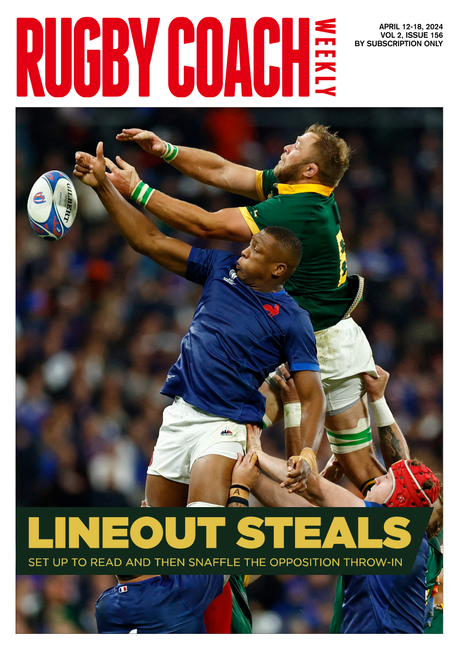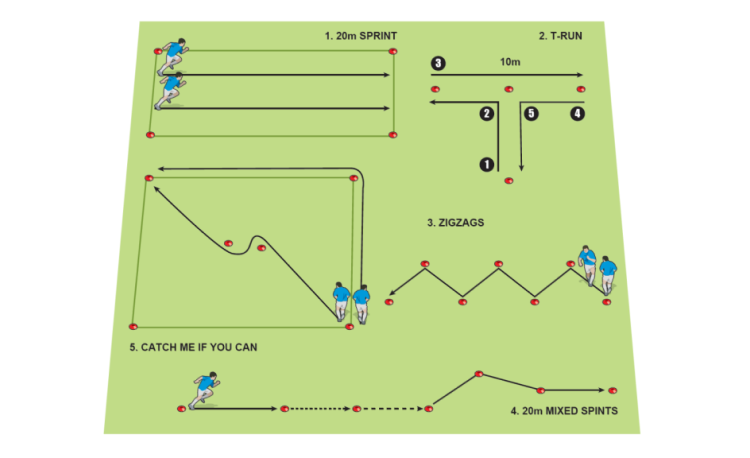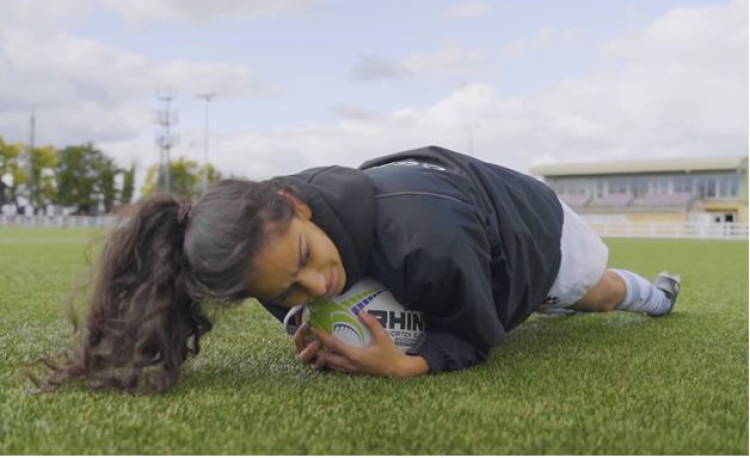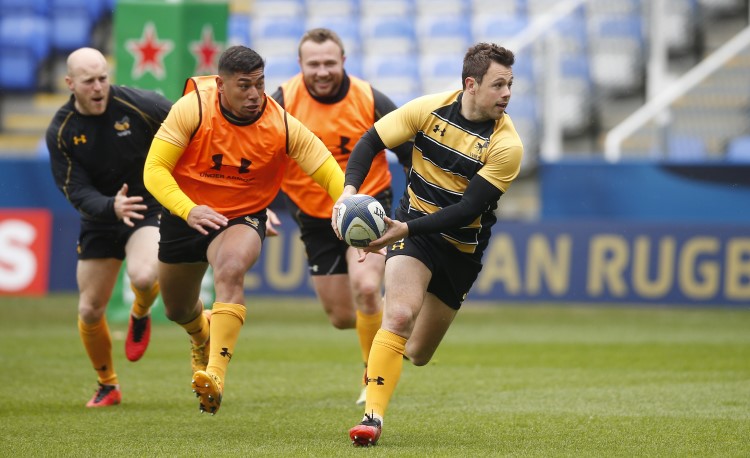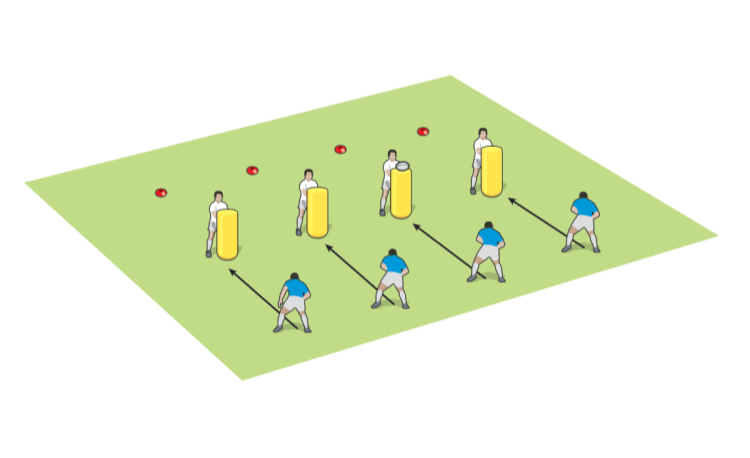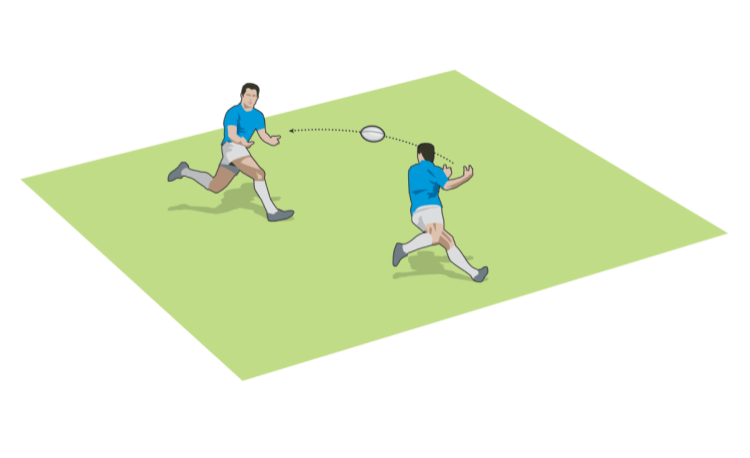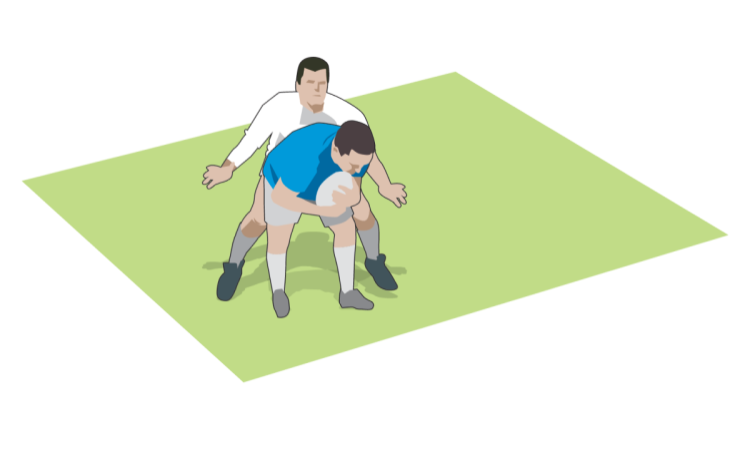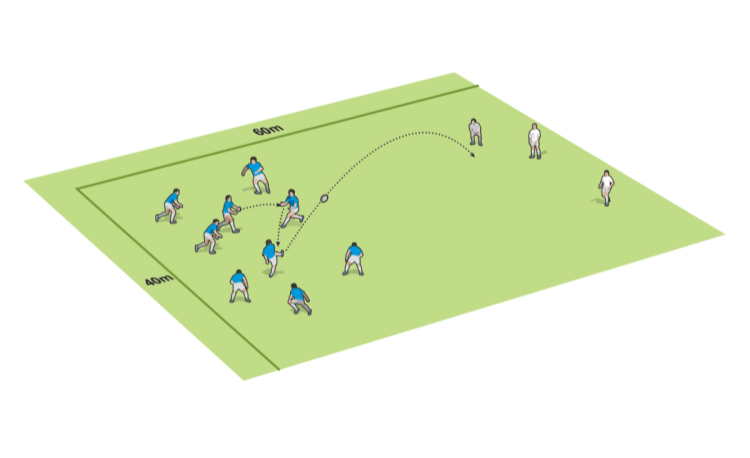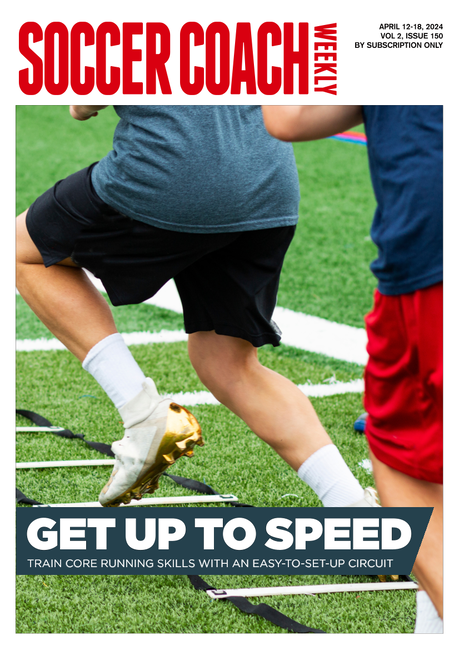You are viewing
1 of your 2 free articles
Airball: Kick off warm-up game
Warm-Upsby Dan Cottrell
The rules
This game must be played by teams of four or five as you need at least one spare grid in each half of the area.
Players look to throw the ball above head height into the spare grid in the opponent’s half. It must hit the ground to score a point.
The opposition must prevent this by catching the ball. They can then try to throw it into their opponent’s spare grid.
Players must call to avoid having two players going for the same ball. If two players go for the same ball they incur a penalty point.
Play to 10 points, switching ends halfway through. Serves alternate and points are scored on every serve no matter what. If the ball goes out of bounds the team that touched the ball last loses the point.
Develop by allowing the players to kick the ball, and the better players to drop kick the ball.
Set-up
Area: 20m long x 15m wide, in two halves. Six 5m square area in each half.
Equipment: One ball, cones.
Players: Ten – two teams of five.
Scoring: One point each time the ball touches the ground and for each penalty.
What to call out
“Launch the airball”
“Call your name to catch the airball”
“Put your name on it”
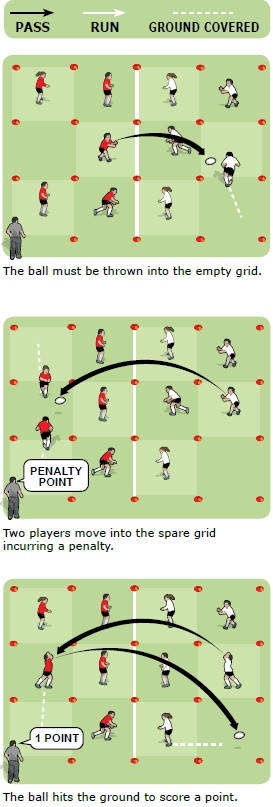
This game is from Fun Mini Rugby Games, designed especially for young players to play and have a good time, while developing core movement and co-ordination.
This game must be played by teams of four or five as you need at least one spare grid in each half of the area.
Players look to throw the ball above head height into the spare grid in the opponent’s half. It must hit the ground to score a point.
The opposition must prevent this by catching the ball. They can then try to throw it into their opponent’s spare grid.
Players must call to avoid having two players going for the same ball. If two players go for the same ball they incur a penalty point.
Play to 10 points, switching ends halfway through. Serves alternate and points are scored on every serve no matter what. If the ball goes out of bounds the team that touched the ball last loses the point.
Develop by allowing the players to kick the ball, and the better players to drop kick the ball.
Set-up
Area: 20m long x 15m wide, in two halves. Six 5m square area in each half.
Equipment: One ball, cones.
Players: Ten – two teams of five.
Scoring: One point each time the ball touches the ground and for each penalty.
What to call out
“Launch the airball”
“Call your name to catch the airball”
“Put your name on it”

This game is from Fun Mini Rugby Games, designed especially for young players to play and have a good time, while developing core movement and co-ordination.
Newsletter Sign Up
Coaches Testimonials

Gerald Kearney, Downtown Las Vegas Soccer Club

Paul Butler, Florida, USA

Rick Shields, Springboro, USA

Tony Green, Pierrefonds Titans, Quebec, Canada
Subscribe Today
Be a more effective, more successful rugby coach
In a recent survey 89% of subscribers said Rugby Coach Weekly makes them more confident, 91% said Rugby Coach Weekly makes them a more effective coach and 93% said Rugby Coach Weekly makes them more inspired.
Get Weekly Inspiration
All the latest techniques and approaches
Rugby Coach Weekly offers proven and easy to use rugby drills, coaching sessions, practice plans, small-sided games, warm-ups, training tips and advice.
We've been at the cutting edge of rugby coaching since we launched in 2005, creating resources for the grassroots youth coach, following best practice from around the world and insights from the professional game.


